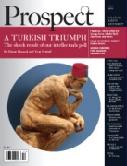The New School
 Today, the New School gave me an honorary degree. I was thrilled as well as honored by it, and was especially pleased that my co-honoree, Harold Koh, made such a sterling defense of international law in his commencement address.
Today, the New School gave me an honorary degree. I was thrilled as well as honored by it, and was especially pleased that my co-honoree, Harold Koh, made such a sterling defense of international law in his commencement address.
Columbia
I was honored and delighted to receive the degree of Doctor of Letters (honoris causa) from Columbia University.
My Nephew
 My nephew, Adetomiwa Edun (Tomiwa to me), is playing Romeo at London’s Globe Theatre. Here is an article from London’s Independent about the production.
My nephew, Adetomiwa Edun (Tomiwa to me), is playing Romeo at London’s Globe Theatre. Here is an article from London’s Independent about the production.
The PEN American Center
 I am very honored to have been elected to the Presidency of the PEN American Center. PEN has a crucial role to play in these challenging times. Everything we do flows from the central mission we share with PEN centers around the planet, which is to work together to sustain the literary cultures of the world. We should pursue this grand aim with determination but also with modesty, just because we share our work with so many others. With other human rights organizations, we work for free expression; with literacy organizations, we spread the essential skills of reading and writing; with publishers and culture ministries, we support translation and bring writers from abroad for our festival of World Voices; with other literary organizations, we recognize, through prizes, the best work of our fellow writers; and, above all, we share the task of sustaining literary culture with readers and writers everywhere.
I am very honored to have been elected to the Presidency of the PEN American Center. PEN has a crucial role to play in these challenging times. Everything we do flows from the central mission we share with PEN centers around the planet, which is to work together to sustain the literary cultures of the world. We should pursue this grand aim with determination but also with modesty, just because we share our work with so many others. With other human rights organizations, we work for free expression; with literacy organizations, we spread the essential skills of reading and writing; with publishers and culture ministries, we support translation and bring writers from abroad for our festival of World Voices; with other literary organizations, we recognize, through prizes, the best work of our fellow writers; and, above all, we share the task of sustaining literary culture with readers and writers everywhere.
PEN began in the shadow of the First World War, as European and American writers sought to bring together the writers of a world divide by ideological conflict and xenophobic nationalism. And it began, and has continued, by defending writers threatened by repression. As Chair of the Freedom to Write Committee of this center a few years ago, I learned how powerful the bond is that links writers across nations in our common vocation. I can still recall the words of a Chinese writer, to whom we had been sending letters while he was in prison. The guards used to taunt him by telling him he wasn’t going to see our letters. What they didn’t realize was that he was sustained—as he told us when he was released—by the knowledge that other writers, half a world away, were thinking of him. He didn’t need to read our words. All he needed was to know we were writing.
In recent years, as our own society has faced a series of serious threats to free expression, PEN has been an active member of the community of those who have tried to fight back, especially through the Campaign for Core Freedoms. Our willingness to take on our own government—at the federal, sate and local levels—has always been one earnest of our good faith when we challenge censorship abroad. I believe, as most other PEN members probably do also, that the new administration in Washington will be less of an opponent here than the last one. But governments will always want to control information, even if individual officials believe in free expression; and we must continue to be vigilant even with an administration many of us support. With friends in Washington we will face more open doors; but an open door is certainly not a reason not to go right on in!
While we have always reached out as writers to writers in other nations, our concern for the fate of free expression is grounded in a conviction not about the special importance of the rights of writers but about the centrality of writing in the life of every reader. (As someone whose father was not a writer but was a political prisoner more than once, I care about the freedoms of everyone, writers or not!) And so we need to work hard every day to make sure that everyone who wants it has access to the rich worlds of poetry, spoken and written, and prose, fiction and non-fiction; to graphic novels and other literary works that use more than words; to drama on stage, television and film; and to the verbal resources in print, in newspapers, journals and magazines, and in blogs and the digital media. And we need to work hard, too, to expand the numbers of those who want to explore these words we believe in so deeply, and to open our literary cultures to a wider range of writers.
Human lives have always been enriched through the creative use of language. In the world of the literary imagination we are challenged to think about what we most believe in, taught new lessons, and offered competing visions of the true, the beautiful and the good. (We are also amused, delighted, entertained …) Translation widens the range of the riches we have access to, opening us up to a world of cosmopolitan conversation.
Of course, as Plato knew, poets (like novelists and journalists) can lie, and they can mislead us without lying. That is why a vigorous culture of argument and counter-argument is so necessary. Wicked words, we have always said, need to be met with wise words, not with censorship. But we need to be able to find the wise words, and in the oceans of writing that flood over us today, how can we find the words we need … and correct the errors that get in the way of understanding?
I am waiting to learn from my own conversations with PEN’s members about what our priorities should be in the next couple of years. But here is one suggestion: Our literary life was once enriched and enlivened by hundreds of serious reviews each week in newspapers around the country. The review pages are disappearing from our newspapers. Are the millions of pages of blog reviews doing the job that the book reviews of the LA Times and the Washington Post and the Chicago Tribune once did? Are they doing it better? Without a culture of intelligent and critical reception, writers cannot find their readers and lies cannot find their refutations. It took centuries to develop the institutions of editing, criticism and review that helped to raise the quality of our literary culture since the invention of the printed book. The new technologies of reading and writing are enormously exciting, but they surely need new institutions of evaluation. Maybe the writers, editors and publishers in our organization have something useful to contribute, as we strive to develop those new institutions?
El Anatsui
My favorite contemporary work in the 2009 Armory show was this piece by the Ghanaian-born, Kumasi-educated, Nigerian-based artist El Anatsui. There are two works in the same style you can view at the New York Met: one in the African collection, Between Earth and Heaven, and one in the contemporary collection, Dusasa II, which is included in this webpage of an interview with him. The picture shows it installed at the 2007 Venice Biennale.
Joseph B. and Toby Gittler Prize
 It’s a very great honor and privilege to have been awarded the first Joseph B. and Toby Gittler Prize by Brandeis University. Here’s how they describe the prize: “The Joseph B. and Toby Gittler Prize was created by the late Professor Joseph B. Gittler to recognize outstanding and lasting scholarly contributions to racial, ethnic and/or religious relations.” The prize is in memory of the distinguished American sociologist, Joseph Gittler, and his mother: and I am especially delighted that it is in honor of a scholar and his mother, since I owe a very great deal in the way of my intellectual and moral life to my own mother.
It’s a very great honor and privilege to have been awarded the first Joseph B. and Toby Gittler Prize by Brandeis University. Here’s how they describe the prize: “The Joseph B. and Toby Gittler Prize was created by the late Professor Joseph B. Gittler to recognize outstanding and lasting scholarly contributions to racial, ethnic and/or religious relations.” The prize is in memory of the distinguished American sociologist, Joseph Gittler, and his mother: and I am especially delighted that it is in honor of a scholar and his mother, since I owe a very great deal in the way of my intellectual and moral life to my own mother.
Prospect/Foreign Policy Ballot
 I was astonished when I was listed on the 2008 Prospect/Foreign Policy Ballot for the world’s top public intellectuals. After all, as I said to Robert Boynton in an interview some years ago, “I somewhat resist being identified as a public intellectual.” In the event, I ended up two down from Lee Kuan Yew! As for the “winner,” it turns out that Turks love internet campaigns, so Fethullah Gülen was number 1. Rather more surprisingly, I’ve met more than 40 of these men and women, and more than a dozen of them are my friends. (Advice from a philosopher friend of mine: Don’t say it’s a small world … it’s just a small class.)
I was astonished when I was listed on the 2008 Prospect/Foreign Policy Ballot for the world’s top public intellectuals. After all, as I said to Robert Boynton in an interview some years ago, “I somewhat resist being identified as a public intellectual.” In the event, I ended up two down from Lee Kuan Yew! As for the “winner,” it turns out that Turks love internet campaigns, so Fethullah Gülen was number 1. Rather more surprisingly, I’ve met more than 40 of these men and women, and more than a dozen of them are my friends. (Advice from a philosopher friend of mine: Don’t say it’s a small world … it’s just a small class.)


